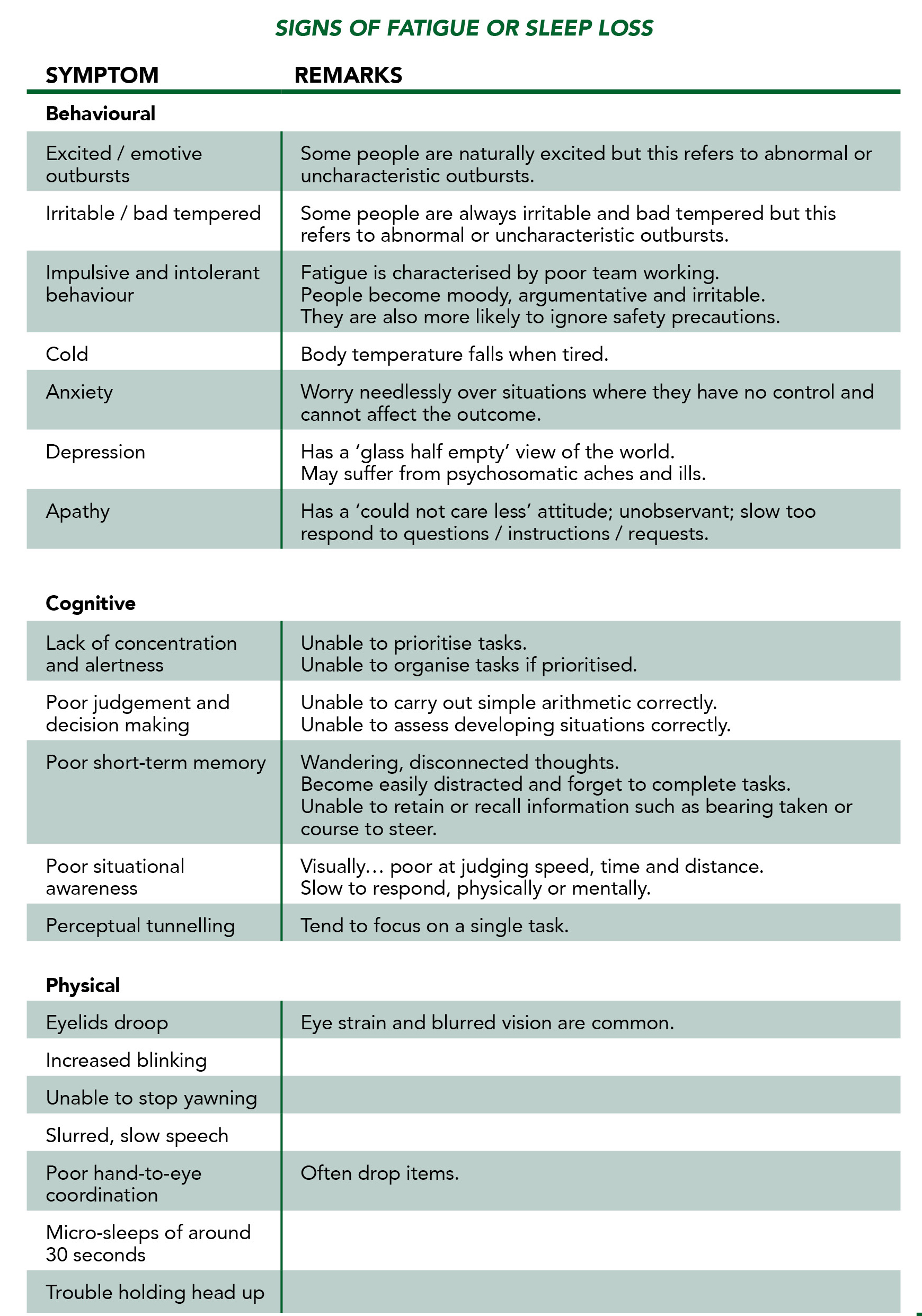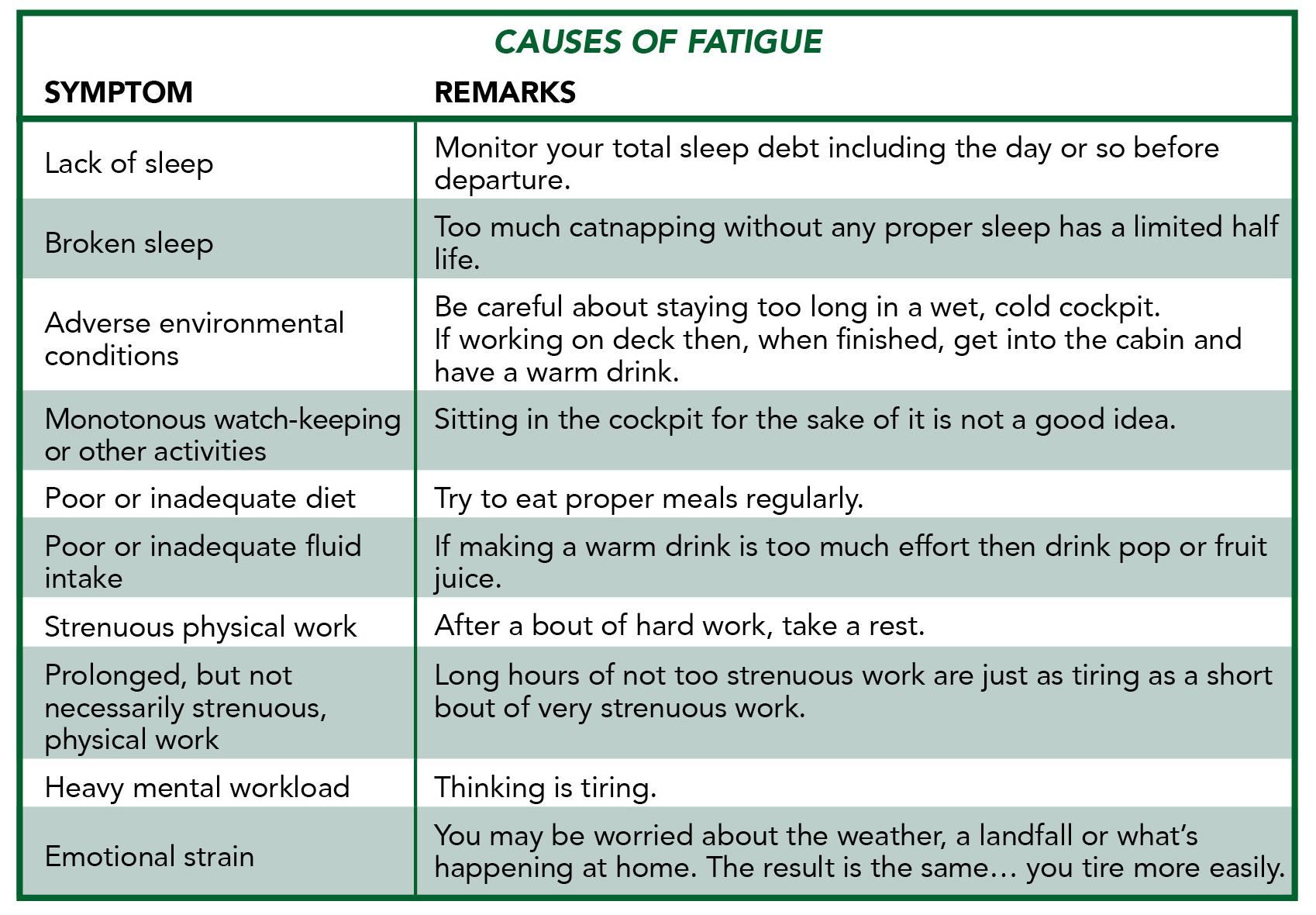Fatigue Onboard - Short-Handed Sailing
Book Extract
It goes without saying that the greatest contributor to fatigue is lack of sleep, but other factors have substantial walk-on roles. Poor-quality rest and sleep are almost as bad as none. If you rely solely on catnaps or do not keep yourself warm and dry when resting, even if sitting in the cockpit, or if your rest periods are continually interrupted, then you will become tired earlier, for longer.
If you work hard for long hours then, surprise, surprise, you become tired. Try to schedule regular heavy work so that it is spread throughout the day with time to recover between sessions.
If you experience poor visibility or heavy weather, or some defect or problem with the boat, you will be emotionally and physically stressed. If you or your crew have personal problems, even if they have been left ashore, then you will be stressed and, when you are stressed, fatigue builds up more quickly than normal. Stress, along with environmental factors (noise, motion, cold and wet) and worry are common causes of insomnia. This is the ultimate irony: you are tired, you want to sleep but you cannot.
Eating sensibly and regularly delays the onset of fatigue. Sugary foods and sweets boost blood sugar levels very quickly and give a burst of energy, but high blood- sugar levels are quickly followed by a near-vertical fall and low blood sugar increases fatigue. Meals mainly of carbohydrates are thought to encourage sleep and those mostly of protein, wakefulness. Proteins are best digested in the morning and are good for breakfast. Eating a large meal just before going to sleep puts your digestive system into overdrive and prevents you sleeping. Meal times should not clash with sleep periods.
The most commonly available and used medicine on board yachts is the ubiquitous seasick pill. Some cause drowsiness and some very nearly qualify as sleeping tablets. It pays to be aware of who is taking them and monitor the effect.

Effect Of Fatigue
One study showed that, after 18 hours awake, the blood alcohol count (BAC) of those taking part was 0.05%. After a further six sleepless hours it had risen to a BAC of 0.1%. Someone with a BAC of 0.1% is seven times more likely to have accident than a person with a BAC of zero.
What makes the results of this experiment scary is that the subjects had no sleep debt before beginning the experiment and were not asked to carry out any physical activities during it. They were students: young, fit and keen to prove it.
It is salutary to think, as you wriggle up the Needles Channel after an overnight Channel crossing, that the law would not let you behind the wheel of a car. In New Jersey, USA, a driver who causes a fatal accident after being awake for 24 hours can be convicted of vehicular homicide.
Another piece of research showed that 24 hours of sustained activity resulted in a 25% performance drop and higher mental functions (such as the ability to evaluate problems or assess incoming information) deteriorated before more obvious signs of fatigue (such as yawning or micro-sleeps) appeared. The message is clear: one day without sleep and you are drunk and incapable. After that it is all downhill!
